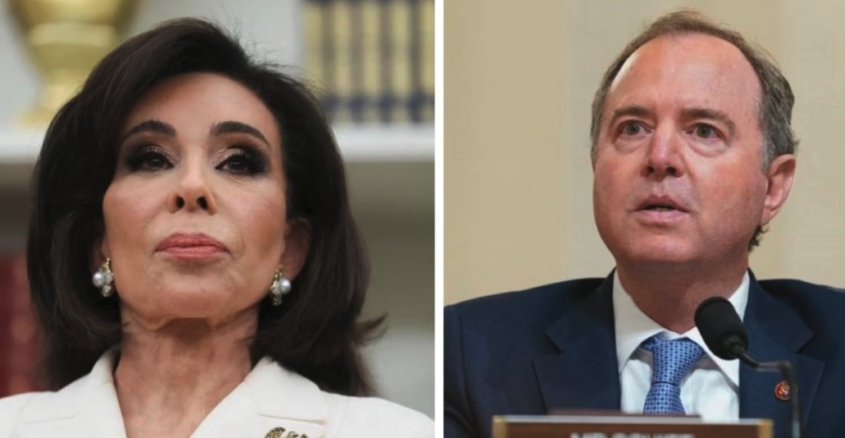Senator Adam Schiff Under Federal Investigation Over Alleged Mortgage Fraud
A major federal investigation has placed Senator Adam Schiff, the California Democrat and prominent political figure, under intense scrutiny. Allegations of mortgage fraud spanning nearly two decades have emerged, raising serious questions about financial integrity, regulatory oversight, and the potential criminal liability of a sitting U.S. senator.
The investigation, quietly underway for some time, focuses on a complex web of property transactions, document inconsistencies, and potential violations of federal banking laws. Observers note that the case is notable not only for its legal implications but also for its political resonance, given Schiff’s status as a high-profile member of Congress and frequent critic of the previous Trump administration.
How the Investigation Began
The probe, confirmed by multiple sources and reported by Fox News, is being conducted by the U.S. Attorney’s Office in Maryland. It stems from allegations that Schiff misrepresented his primary residence status on mortgage applications for multiple properties over a prolonged period.
Federal authorities are examining whether Schiff’s representations on these loans constitute violations of wire fraud, mail fraud, bank fraud, and making false statements to financial institutions. The investigation appears to be one of the most serious federal probes involving a sitting senator in recent years.
The Role of the Federal Housing Finance Agency
The investigation originated with a criminal referral from the Federal Housing Finance Agency (FHFA), which oversees Fannie Mae, Freddie Mac, and the Federal Home Loan Banks. In May, FHFA Director William Pulte submitted a detailed letter to the Department of Justice outlining alleged misconduct by Schiff.
Pulte’s correspondence described what he characterized as “a sustained pattern of potential fraud” in federally-backed mortgage applications. According to the letter, Schiff allegedly falsified bank documents and property records to secure favorable loan terms on a Potomac, Maryland property from 2003 through 2019.
“As regulator of Fannie Mae, Freddie Mac, and the Federal Home Loan Banks, we take allegations of mortgage fraud very seriously,” Pulte wrote. “Such misconduct threatens the safety and soundness of FHFA’s regulated entities and the stability of the U.S. mortgage market.”
Fannie Mae’s Internal Findings
The scope of the investigation expanded after Fannie Mae’s financial crimes unit conducted an internal review of Schiff’s loan history. Their analysis reportedly identified a pattern of “occupancy misrepresentation” across five Fannie Mae-backed mortgages.
This internal audit provides detailed documentation that could be central to any criminal proceedings. Investigators believe the repeated misrepresentations suggest a systematic approach, rather than isolated mistakes, strengthening the case if charges are filed.
The Maryland Property at the Center
At the heart of the investigation is a home purchased in Potomac, Maryland, in 2003 for $870,000, with a Fannie Mae-backed mortgage of $610,000. Schiff allegedly certified the property as his “primary and principal residence,” a designation that impacts loan interest rates and terms.
Federal authorities allege that Schiff maintained this primary residence claim through multiple refinancing transactions in 2009, 2011, 2012, and 2013, even while serving as a U.S. Representative for California. The 2011 refinancing affidavit, signed by Schiff, is reportedly a key document under review.
Investigators note that Schiff did not designate the Maryland property as a secondary residence until 2020—nearly 17 years after purchase and seven years after his final refinancing while claiming primary residence status.
Conflicts with California Property Claims
Complicating the matter, Schiff was simultaneously claiming a homeowner’s tax exemption on a condominium in Burbank, California, which required asserting it as his primary residence. The apparent contradiction—claiming Maryland as primary for mortgage purposes while claiming California as primary for tax benefits—forms a central aspect of the federal investigation.
Federal authorities are examining whether these dual claims were part of a deliberate strategy to gain favorable financial treatment from lenders and tax authorities. A 2023 statement from a congressional spokesperson asserting that Schiff’s primary residence was in Burbank has also been scrutinized in connection with the Maryland mortgage claims.
Potential Legal Implications
If proven, the allegations could constitute violations of multiple federal statutes:
-
Wire fraud if electronic communications were used in the alleged scheme.
-
Mail fraud if postal services were involved in submitting documents.
-
Bank fraud due to misrepresentations to federally-regulated financial institutions.
-
False statements to financial institutions, which carry both civil and criminal penalties.
Director Pulte’s letter suggests investigators believe the misrepresentations were deliberate and undertaken with full awareness of their financial benefits, particularly regarding the advantages of primary residence mortgages over secondary loans.
Schiff’s Response
Senator Schiff’s office has offered limited comment. In 2023, a spokesperson told CNN that both his California and Maryland addresses were “occupied throughout the year” and distinguished from vacation properties.
Legal experts note that members of Congress often navigate complex residency rules, given obligations in both their home states and Washington, D.C. However, federal authorities are reportedly focused on the sustained pattern of misrepresentations over many years, which could suggest more than inadvertent error.
Broader Implications
Beyond Schiff’s individual accountability, the investigation raises broader concerns about oversight of federal housing programs and the detection of fraud in government-backed lending. That these alleged practices reportedly went undetected for nearly two decades highlights potential gaps in monitoring and regulatory enforcement.
Given Schiff’s high profile in national politics, the case has attracted significant attention, though the FHFA referral indicates the investigation is rooted in regulatory concerns rather than political motivations.
What’s Next
Federal prosecutors in Maryland will ultimately determine whether the evidence supports criminal charges. The case could have major implications for Schiff’s political career and for future enforcement of mortgage and tax laws as they apply to elected officials.
As the investigation continues, federal authorities are reviewing extensive documentation from both the FHFA and Fannie Mae’s financial crimes unit. The outcome will determine whether one of the most prominent Democratic senators will face criminal accountability for alleged mortgage fraud spanning nearly 20 years.

